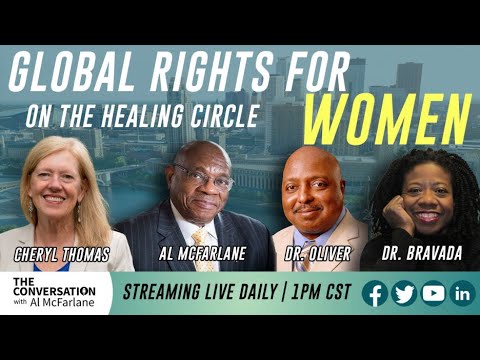Major Health Initiative Broadcasts Through Black Press
In a groundbreaking partnership, the American Heart Association (AHA) has collaborated with the National Newspaper Publishers Association (NNPA) to broadcast a pivotal health initiative exclusively through the Black Press of America. This initiative, titled “Changing the Future of Health for Black Communities: Public Health and Media Symposium,” was a virtual event streamed live on the NNPA’s YouTube channel in celebration of Black History Month.
Originally intended as a hybrid event in Washington, D.C., the symposium was adapted to a fully virtual format in response to adverse weather conditions. The gathering convened healthcare and media leaders to highlight the urgent necessity for collaboration in tackling health disparities that disproportionately affect Black Americans. Featured panelists included renowned health experts such as Dr. Regina Benjamin, the 18th U.S. Surgeon General and founder of the Bayou Clinic; Dr. Keith Churchwell, president of the American Heart Association; and Katrina McGhee, AHA’s chief marketing officer. The media panel included voices like Sharí Nycole, co-host at Reach Media; Dr. Benjamin Chavis Jr., NNPA president and CEO; and April Ryan, senior White House correspondent for BlackPressUSA.com. Notable journalist Sybil Wilkes moderated the engaging discussions.
The Crisis of Black Health
Dr. Churchwell presented alarming statistics that reveal the stark toll of cardiovascular disease on Black Americans. “Cardiovascular disease remains the leading cause of death in the Black community,” he stated. “From 2017 to 2020, nearly 59 percent of Black individuals over 20 had some form of cardiovascular disease, including coronary disease, stroke, and hypertension. In just 2022, almost 65,000 Black men and 59,000 Black women lost their lives to cardiovascular conditions.” He noted that hypertension, a significant risk factor for heart disease and stroke, prevalently affects the community, detailing that it impacts 57 percent of Black men and 58 percent of Black women versus 47 percent in the general population.
Dr. Benjamin highlighted that closing health disparities demands more than medical intervention alone. “We’ve learned that effectively reducing health disparities requires us to address social determinants like poverty, education, and access to healthcare,” she explained. “Research indicates that these socioeconomic factors can pose a health risk as serious as smoking.” Emphasizing prevention, she mentioned, “Quality health outcomes rely on not only access to information and technology but also on effective communication—ensuring patients understand us and vice versa.”
The Role of Media in Shaping Black Health
NNPA President Dr. Chavis articulated the vital role of the Black Press in sharing accurate health information and countering misinformation. “It’s essential to acknowledge that Black media possesses the power to inform and educate our community on health matters,” he stated. “One-time messaging isn’t enough—we need to consistently reinforce our health messages.” April Ryan pointed out the urgent need for continuing this dialogue. “We are still the community grappling with the highest negative health outcomes across nearly all categories,” she emphasized. “This conversation must extend beyond today—it’s about life and death.”
Sharí Nycole stressed that the media should lead by example. “We can’t just tell people what to do; we need to be living examples ourselves,” she asserted. “We must demonstrate health prioritization via social media, community events, and personal engagement.”
CPR: A Movement Towards Lifesaving Knowledge
The symposium highlighted the AHA’s Nation of Lifesavers campaign, aiming to equip more Black families with CPR knowledge. This initiative gained traction following the on-field cardiac arrest of Buffalo Bills player Damar Hamlin, where immediate CPR was crucial. “Nearly three out of four cardiac arrests outside a hospital occur in homes,” McGhee explained. “This underscores that the lives saved are often those of our loved ones. However, Black individuals are less likely to receive bystander CPR—this must change.” Churchwell also referred to a recent AHA study indicating that while overall bystander CPR rates have improved, Black women remain the least likely to receive immediate CPR assistance—highlighting the need for intervention.
A Call to Action for Community Health
Dr. Chavis announced that the NNPA will elevate Black health as a pivotal editorial focus extending beyond Black History Month. “We can’t afford to lose even a single day in our healthcare focus,” he stated. “Health is an issue that deserves attention every month, every year.” Ryan emphasized the importance of communal accountability. “We need to encourage one another—host CPR training with friends, engage in healthcare discussions in barbershops, and provide health screenings at church health fairs. These small steps can have a profound impact on saving lives.”
McGhee added her encouragement for proactive measures: “We must transition from mere awareness to action. It’s vital that at least one person in every household knows CPR. If you currently don’t, today is the day to start. Visit heart.org/nation to learn more.”


